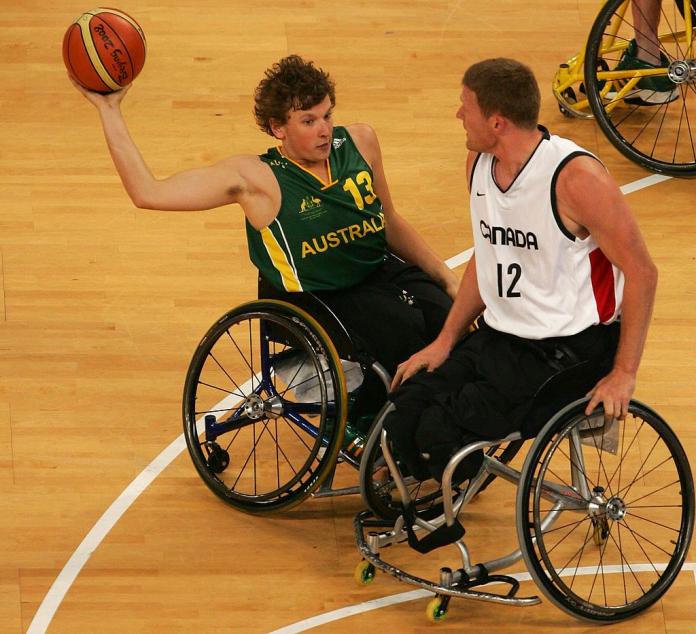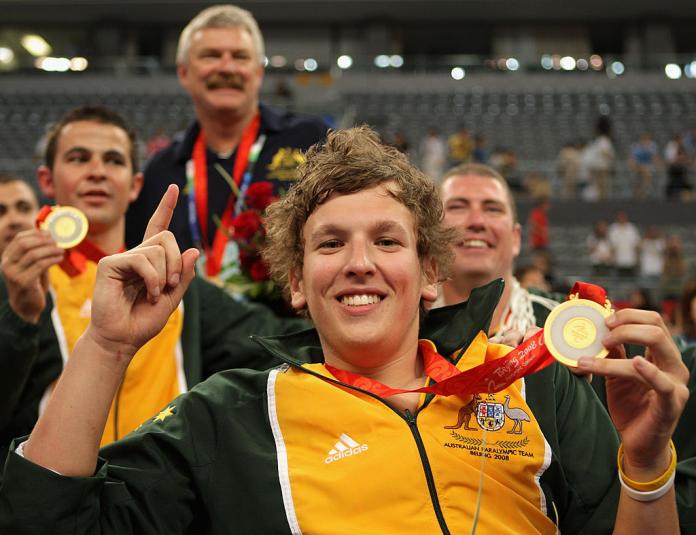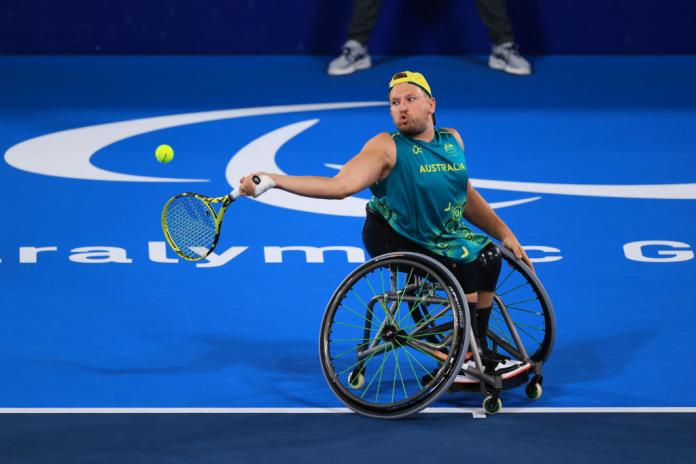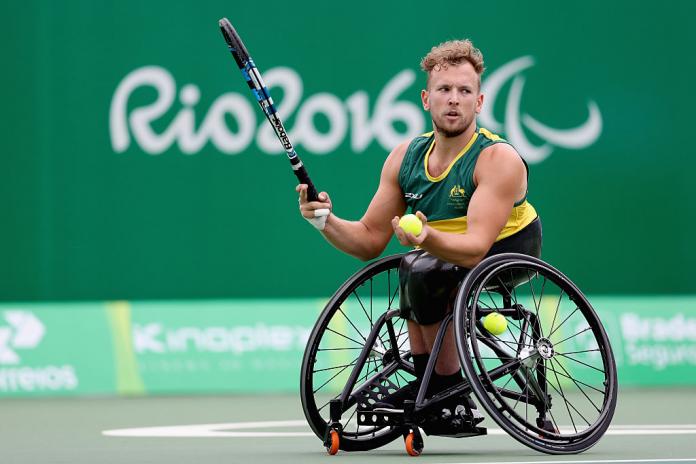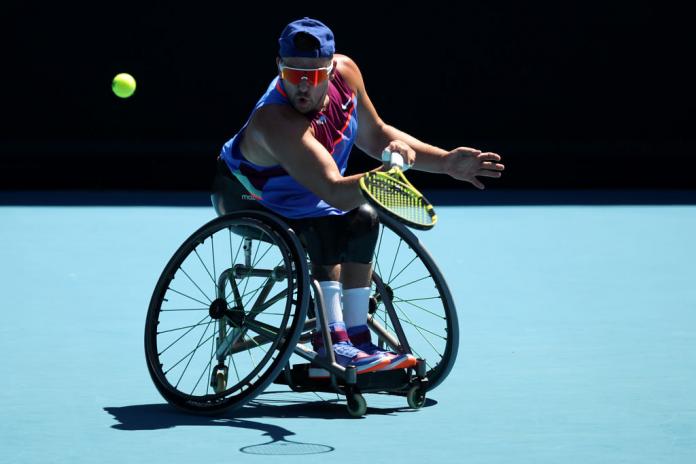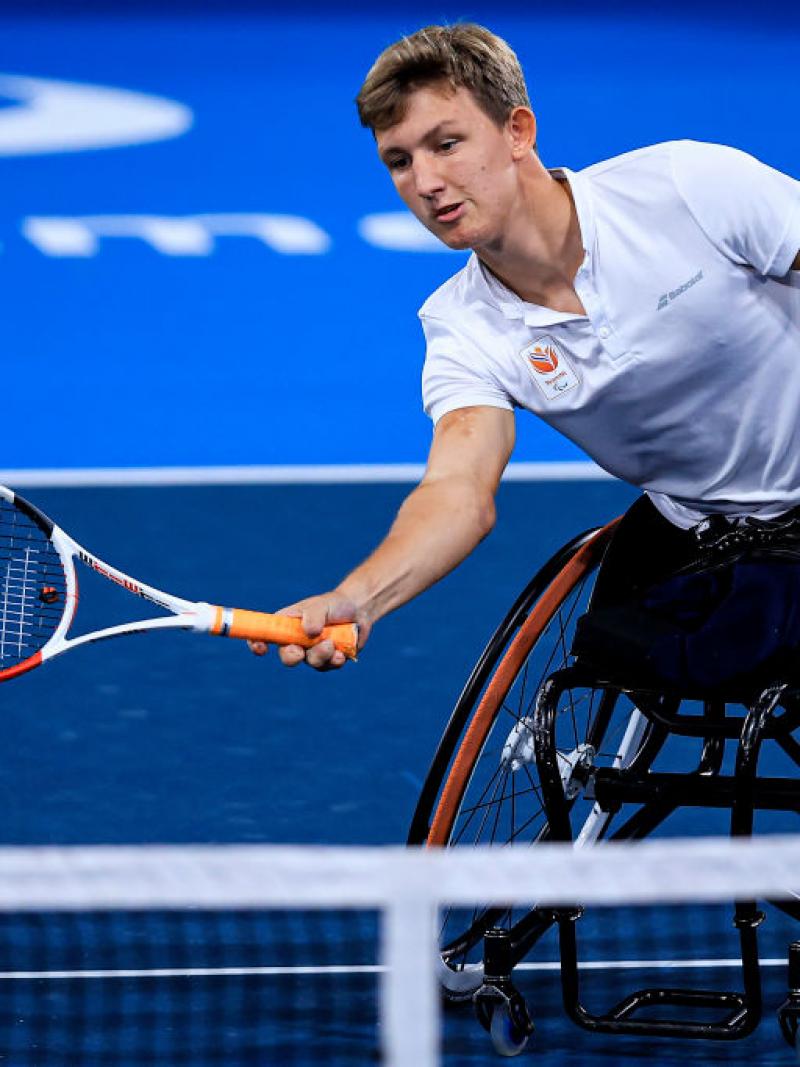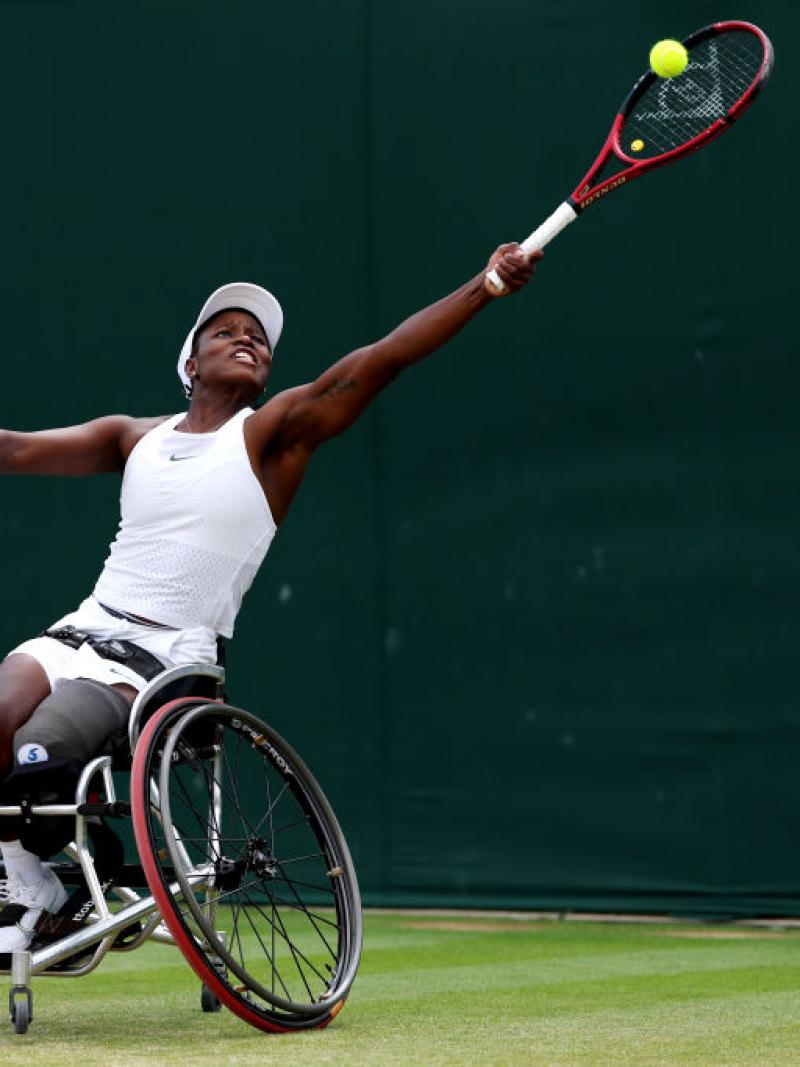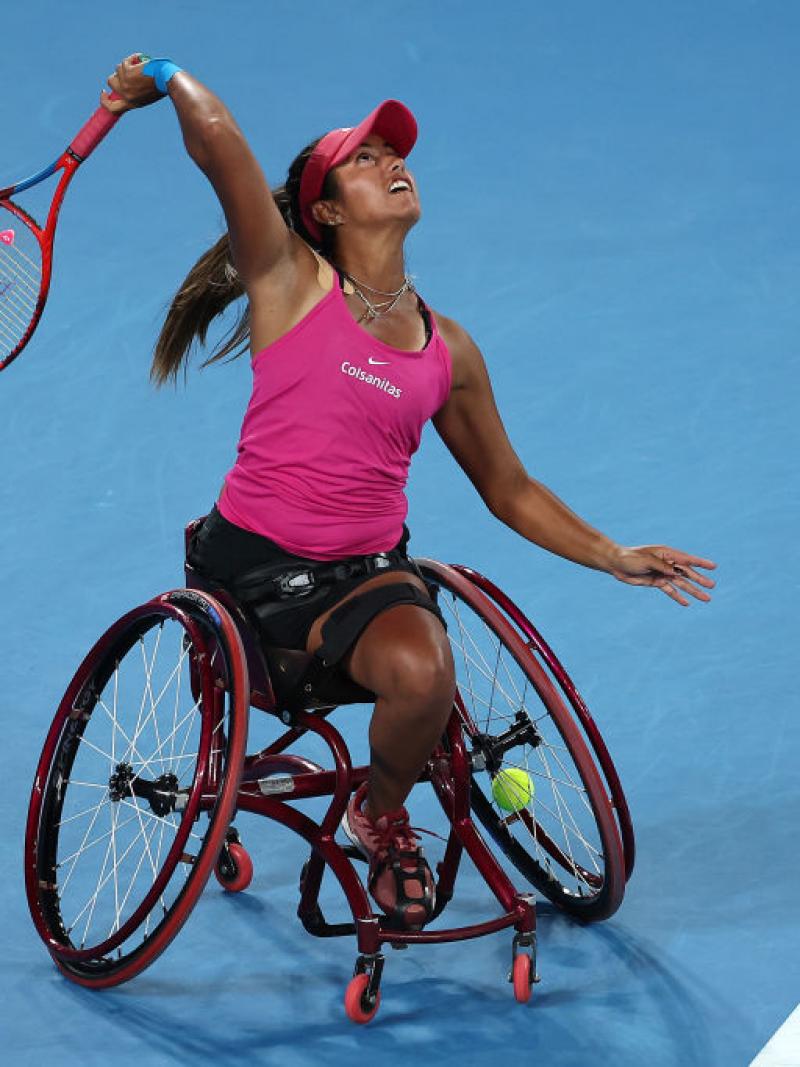‘I just bloody loved it’: Dylan Alcott looks back on a career that changed Para sport
Dylan Alcott, the four-time Paralympic champion in wheelchair tennis and wheelchair basketball, reflects on his role in elevating the Games to headline status 25 Jul 2024
Dylan Alcott may have achieved that rarest of feats by winning Paralympic gold in two different sports. He may even have topped that by winning a fourth gold at Tokyo 2020 to become the only male tennis player ever to win a ‘Golden Slam’.
But, remarkably, his greatest moment in sport does not even involve himself.
“I was 17 and I was in the food hall in Beijing (2008 Paralympic Games),” Alcott started. “I see this guy and he is carrying his buffet tray of food in his mouth and I was like ‘check out this guy, why is he not using his arms?’. He was a double amputee above the shoulders.
“So, I was thinking, how is he going to eat his food? Does he have a carer? Is he going to face plant? But he took off his shoes, walked across the food hall and with his toes picked up a pair of bamboo chop sticks. He went back to his seat, pulled off the paper, cracked them open and started eating his rice with his chopsticks with his feet.
“I then found out – and I watched this with my own eyes – he could swim the 100m backstroke in 1 minute 13 seconds.
“I was like how does the rest of the world not see this more? Not the inspiration angle, just the elite, problem-solving, amazing achievement that we are as Paralympians.”
‘Sport genuinely saved my life’
This, ultimately, is Alcott’s message. For all the individual honours, his 15-year sporting career is about so much more.
First up, it dragged him out of the darkest of depths.
“I am a real proud Paralympian and I am real proud of my disability but I wasn’t always, I used to hate my disability to be honest,” the Australian said. “Sport genuinely saved my life. The social aspect of meeting my community, my tribe, coupled with the confidence and other benefits I got was unbelievable.
“I am a four-time Paralympian, four-time gold medallist. If you’d told a young Dylan who hated himself, was getting bullied about his disability that was going to happen, I just wouldn’t have believed you.”
Beijing beginnings
The journey started in Beijing in 2008. Aged 17, Alcott was the youngest member of the Australian wheelchair basketball squad. After getting the better of favourites Canada in the final, the teenager stood on top of his first Paralympic podium and knew he had found what he was looking for.
“All these guys had believed at one point that their life was over,” Alcott said. “But watch that podium, us all in tears, singing that national anthem, I get goose bumps still talking about it because that’s how much it meant to me. It really had an impact on me. It made me a better person, a better advocate and I just bloody loved it.
“And it made me train because I wanted that feeling again.”
‘The instigator of all the change’
He did get that feeling again. Although it was different four years later in London. On a purely personal basis, the sensation of claiming silver, behind Canada this time, “sucked”.
But he did get to witness something he wanted even more than glory.
“London was the instigator of all the change,” Alcott said. “The way they advertised it, the way they broadcasted it. It was seen by the rest of the world.
“Back then there was an element in the non-disabled community that the Paralympics were a bit of a feel-good event where everyone sings ‘Kumbaya’. And there might be an element of that, of bringing people together, but it’s also elite entertainment.”
Retirement plans put on hold
That was meant to be it. After the rigours of two Paralympic cycles and a gold and a silver medal in his pocket, Alcott was done. A job in radio and TV was looming after a few months backpacking around the world.
But the man who had played wheelchair tennis as a youngster, found himself shadow hitting in a sports shop in Amsterdam. It was enough to reignite a fire. On his return to Australia, he called up his old coach and asked for a hit.
Eight-plus years of elite training had transformed the previously skittish kid into a honed, athletic and still highly talented man. Basketball’s loss was tennis’ gain.
“I don’t really do things in halves and I said, ‘if we are going to do this let’s do it properly’. So, I started hitting every day,” Alcott explained.
Less than two years after picking up a racket again, the Australian won first doubles and then singles gold at the Rio 2016 Paralympic Games, beating the then world No.2 Andy Lapthorne of Great Britain in the final.
It had not all been plain sailing: Alcott lost the first nine finals he was in as he struggled to come to terms with not having a team around him. But once he got the first one in the bag, late in 2014, that was it.
Dominant force
By the time of the Rio 2016 Games he was a three-time Grand Slam champion and the firm favourite. Gold duly fell his way once more, although it was more of a relief than anything else.
“I don’t even remember the medal ceremony because I was just thinking to myself, ‘thank God I won’,” he said.
Five years later and the Australian arrived in Tokyo for the Paralympic Games as one of the most dominant sportsmen on the planet. On the verge of becoming the first male player to ever complete a golden slam (winning all four major titles plus a Paralympic or Olympic crown in the same year) every eye was trained on Alcott.
“Even though I was saying in the media I wasn’t thinking about it, that was a lie,” he recalled, laughing. “There was probably more pressure on me than ever.”
He wore it lightly, defeating rising star Sam Schroder of the Netherlands in the final.
Changing the face of sport
Less than six months later, he faced the same opponent in the Australian Open final, knowing it was his last ever match. The public knew it, too.
“My first Australian Open there were four people there and they were all my family. By the time I retired, my last Australian Open match, 25 per cent of the population watched it and they held the news, which never happens,” Alcott said.
This more than anything confirmed to Alcott that his career made a difference.
“That’s what it should be all around the world. I want more people to have the opportunities I had,” he said. “We deserve it. We are elite athletes and we give a return on investment to broadcasters and sponsors and ticket holders because people want to watch – why? Because it’s sick and it’s cool and it’s entertaining.”
Learn more about wheelchair tennis and 22 sports on the Paris 2024 Paralympic programme

 Facebook
Facebook
 Instagram
Instagram
 Twitter
Twitter
 Youtube
Youtube
 TikTok
TikTok
 Newsletter Subscribe
Newsletter Subscribe

